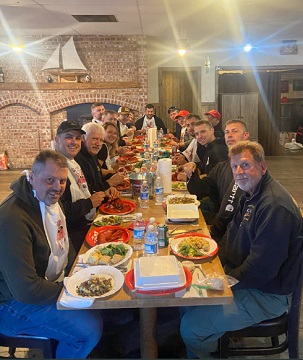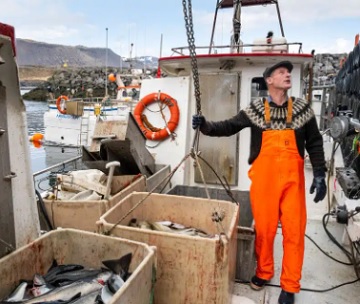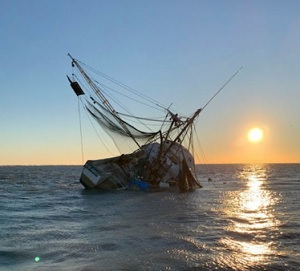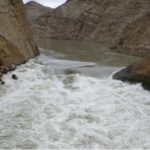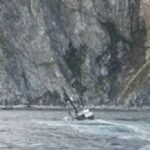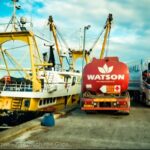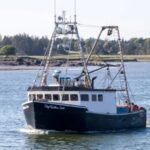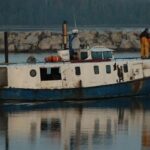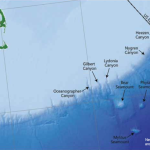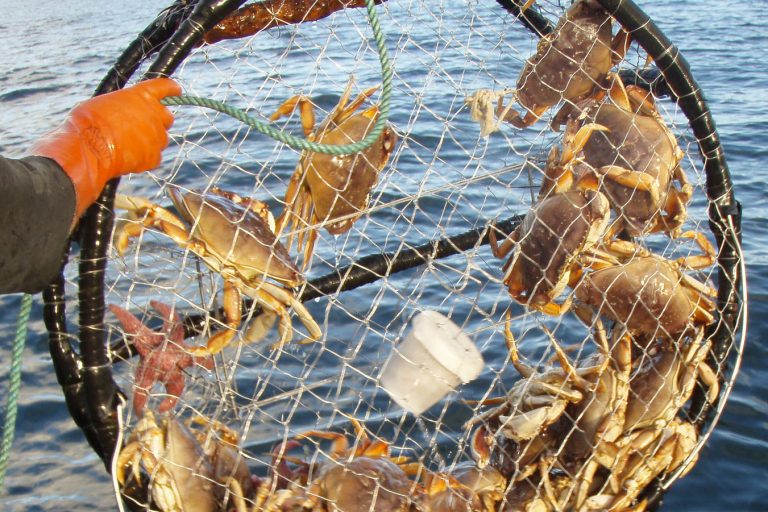Monthly Archives: June 2023
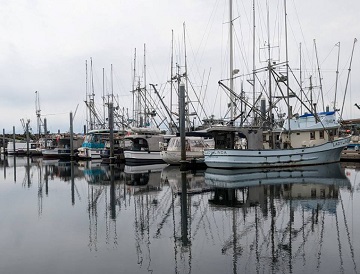
‘It’ll be a disaster’: Southeast Alaska fishermen fear looming closure of king salmon fishery
“I’m optimistic, but I’m also scared as heck,” said Eric Jordan, a lifelong fisherman and resident of trolling stronghold Sitka at the standing room-only meeting with federal National Marine Fisheries Service officials. The closure of the king salmon fishery in Southeast Alaska would be economically devastating, according to many in the region who rely on the valuable fish for their annual income. A federal judge in Washington state effectively shut down the fishery in May in response to a lawsuit brought by Wild Fish Conservancy, a Washington organization. The suit contends that the fishery should be closed to protect endangered killer whales in Puget Sound that feed on chinook salmon. >click to read< 11:46
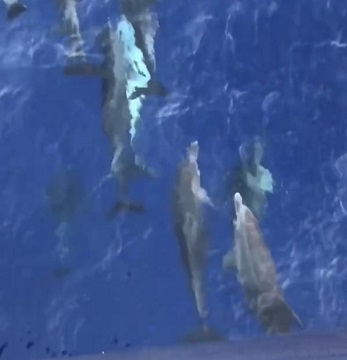
A seismic blasting whistleblower speaks
Hayley had been working on seismic blasting vessels for almost three years when she realised just how destructive the practice was. Her final assessment was simple: “I can’t believe that this is legal.” Hayley, who asked for her real name to not be used, was employed as a marine fauna observer. Her job was to look for marine mammals such as the southern right whale, which could be harmed by the blasts used to search the ocean floor for oil and gas. Blasting would be paused only when specific whales were sighted. The negative impacts of the blasting are hard to see because they happen below the surface. >click to read< 10:16

Pollution Kill of ’76
In 1976 Gosta “Swede” Lovgren of Point Pleasant N.J. witnessed first hand the destructive effects of a massive Fishkill, caused by an oxygen deprived dead zone that stretched from Long Island south to Atlantic city, and extended 40 to 50 miles to the east. In this article he describes firsthand not only the environmental aspects of the Fishkill, but his efforts to halt ocean sludge dumping. Swede was the leader of the commercial fishermen’s fight against ocean dumping which included filing a $500,000,000 lawsuit against the city of New York. Fascinating reading, well worth your time. >click to read< 09:09
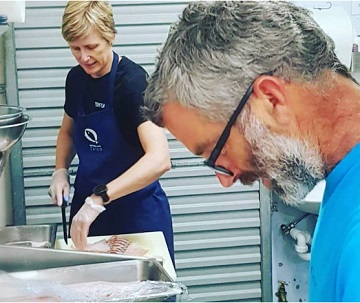
Fisheries scientist fears fish and chip prices will increase following gillnet fishing ban
For decades, fishers in Queensland have used large rectangular gillnets in creek mouths to catch barramundi, threadfin, and other popular table fish. But this week the Queensland and federal governments announced a ban on the practice by 2027, after conservationists raised concerns about the impact of the nets on dugongs, turtles, and sharks. The move has infuriated the fishing industry, which warns fresh Australian fish will be taken off the market and replaced with overseas farmed products. Fisheries scientist and commercial fisher Andrew Tobin said the industry was “completely blindsided” by the ban. >click to read< 08:14
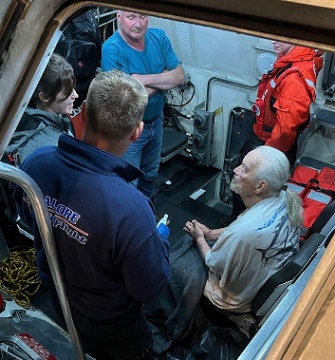
Coast Guard rescues 2 men from capsized boat off Southwest Oregon Coast
The 2 menrescued two people from their boat after it capsized Wednesday night off the coast of Nesika Beach. Watchstanders at Coast Guard Columbia River received notification around 7:30 p.m. from the wife of the captain of a 26-foot commercial fishing vessel stating that her husband had not made it back to the marina at the time he said. The wife had also relayed to the Coast Guard that a friend had called the vessel operator at approximately 3 p.m., which was the last time someone had contact with anyone on the vessel. Utilizing cell phone forensics, watchstanders were able to narrow down a viable search area. Just after 11 p.m., the aircrew located the vessel with the men sitting on the overturned hull. They were not wearing life jackets. The helicopter crew then vectored the boat crew to the scene. >click to read< 21:42
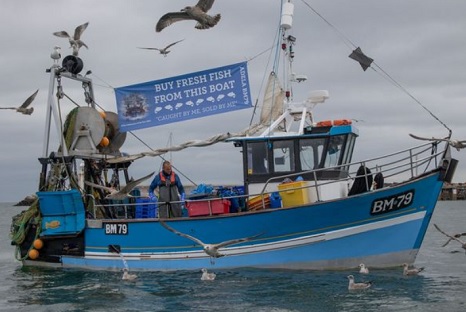
Devon man forced to drive 1,000 miles a week to deliver fish
A Devon fisherman is calling on the King to resolve his predicament as he launches a petition against bylaws that prevent him from selling fish directly from his boat at Brixham harbour. Tristan Northway used to be able to do this from his boat ADELA MB79 due to a relaxation in these bylaws during the pandemic where he sold fish caught just half an hour from the harbour. Now the pandemic allowances are over and he is not allowed to sell at the harbour he has to drive 1,000 miles a week, he said, in order to deliver his fish nationwide. He said he goes as far as Stoke-On-Trent and Birmingham meaning sometimes he only just covers his costs. Photos, >click to read< 13:23
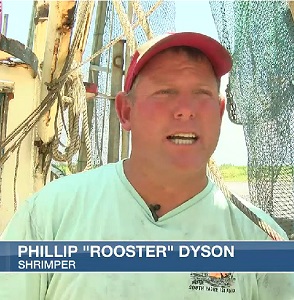
Shrimpers and fishers concerned about LNG expansion
Cameron has been home to a thriving fishing and shrimping industry since the 1800′s, but will it always be that way? Some of the fishers and shrimpers have a bleak outlook about their future as the LNG Industry grows. A media boat tour was held for local and out-of-town media aimed at making people more aware. It was a beautiful day on the water aboard Phillip “Rooster” Dyson’s shrimp boat. Shrimping is a way of life for generations of his family. But he said they are being squeezed out by the booming growth of LNG export companies. He doesn’t think the fishing industry will last. Video, >click to read< 10:55
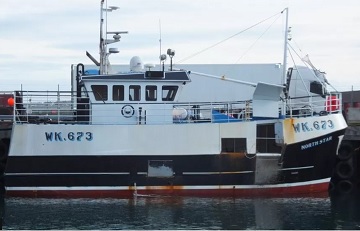
Seafood firm fined over Thurso fisherman’s death
Mark Elder, 26, from Thurso, was working on the creel boat North Star off Cape Wrath on 5 February 2018. He was helping to deploy creels when he became entangled in a coil of rope and was dragged overboard and into the sea. Thurso-based Scrabster Seafoods Ltd was fined after pleading guilty to health and safety breaches. On Wednesday, Tain Sheriff Court heard Mr Elder’s crew-mates tried to stop him from going into the water. It took about 10 minutes for him to be brought back on board. Efforts to resuscitate Mr Elder continued for more than an hour but were unsuccessful. >click to read< 09:59
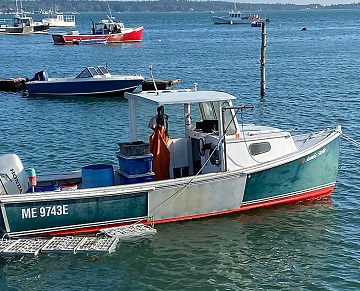
Maine bill to pay lobstermen to test new gear gets initial Senate approval
The bill seeks to set aside $1 million a year for the next two years to help lobstermen comply with federal regulations that could kick-in within six years. Following the Senate vote on Tuesday, bill sponsor Sen. Eloise Vitelli (D-Arrowsic) said federal regulators have “targeted Maine’s lobster industry as a scapegoat.” “The bipartisan fight against these untenable regulations is ongoing,” she said in a statement. “This bill will help make sure that lobstermen are prepared for what might be on the horizon.” Vitelli’s bill, which faces additional House and Senate votes, would provide stipends to reimburse lobstermen for time they spend testing gear. >click to read< 09:05
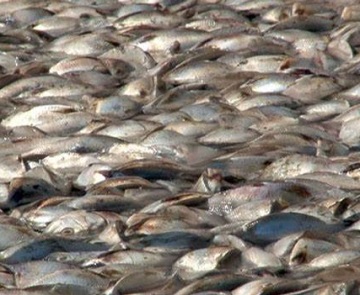
Is the Great Fishkill of 1976 About to be Repeated? By Jim Lovgren
In 1976 the United States suffered its largest man-made environmental disaster ever as 2,500 square miles of ocean died, thanks to a hundred years of sewage dumping by New York City and Northern New Jersey communities. This catastrophe awakened the public to this disgusting practice and environmental organizations sprung up to fight it, eventually winning the fight. Proving that the little guy can prevail against the “powers that be”. >click to read< 17:37
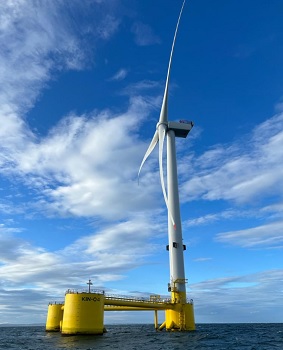
Who will benefit from Morro Bay wind energy job creation?
California plans to rely on offshore wind energy to achieve its renewable energy goals. The off-shore wind farms are projected to generate 2,000 to 5,000 megawatts of energy by 2030 and 25,000 megawatts by 2045. Cyrus Ramezani and Mahdi Rastad’s 86-page report details the economic impacts of the Morro Bay wind energy projects and identifies the types of jobs that will be created. Last year, the federal government auctioned off three offshore wind energy sites located between 20 and 30 miles off the coast near Morro Bay. The report does not discuss the number of jobs the county will lose in the fishing and hospitality industries. >click to read< 16:30

Happy Birthday, Ginny! Maine’s ‘Lobster Lady’ celebrates 103rd birthday
Virginia Oliver, affectionately known as Maine’s “Lobster Lady,” is still lobstering at the age of 103. Virginia, or Ginny as her friends call her, celebrated her 103rd birthday on Tuesday. She gathered with friends and family at the Rockland Historical Society to mark the occasion and check out the earrings she was wearing. Wayne Gray said Virginia has renewed her lobster fishing license for the 2023 season. She started lobstering with her father and older brother when she was 8 years old, so this marks her 95th year hauling traps. Video, >click to read< 12:50
Athearn Marine Agency Boat of the Week: 35.9′ H & H Osmond Beal Tuna/Lobster, John Deere 6076 Diesel
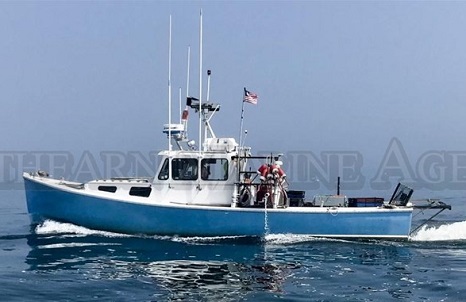 To review specifications, information, and 33 photos’, >click here<, To see all the boats in this series >click here< 11:31
To review specifications, information, and 33 photos’, >click here<, To see all the boats in this series >click here< 11:31

Rick Crane’s lobster holding tank gives him more control over selling and holding lobsters
A fisherman and business owner in Cox’s Cove, on Newfoundland’s west coast, has built his own lobster holding tank — one that can hold 48,000 pounds of the crustacean, to ensure he has more control over the selling process. Rick Crane of Crane’s Legacy says he built the tank to remain an independent seller. “The lobster market is like the stock market. It goes up and down, as you could see, like this year, with the lobster buyers not always buying. You can’t always fish and you can’t always sell. With this, this stops that.” The $500,000 lobster pound, which took several years to construct, includes a large water pump that pumps more than 1,400 litres a minute and reaches 300 metres out into the ocean off Crane’s wharf. Video, >click to read< 09:56
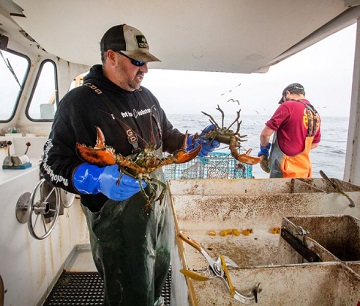
Canadian and American lobster industry confronts ‘ropeless’ traps after whale entanglements
Injuries to endangered North Atlantic Right Whales ensnared in fishing gear have fueled a prominent campaign by environmental groups to pressure the industry to adopt on-demand equipment that only suspends ropes in the water briefly before traps are pulled from the water. To address the problem, the U.S. and Canadian governments have imposed new regulation on lobster and crab fisheries in recent years, including the use of weak links in rope that break if a whale swims through, color-coded rope for tracing, adding more traps per buoy line, and zone closures during whale migration. Washington and Ottawa are now promoting ropeless fishing as a possible long-term solution. But lobstermen, particularly in Maine where 80% of U.S. lobster is caught, are not enthusiastic. >click to read< 08:49
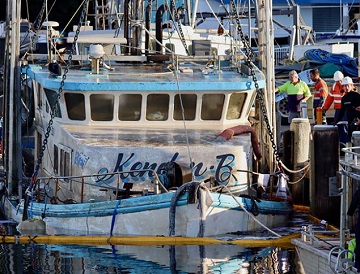
Port Stephens Maritime Community Rallies Around Milanja Family
The maritime and greater community Port Stephens have rallied around the Milanja family as their much-loved fishing trawler and livelihood, the Kendon B, had to be recovered from D’Albora Marina last Tuesday. The vessel sank on its mooring on Friday 19 May which came as a double blow to the Milanja’s as Miro, owner and operator of the Kendon B, has recently been discharged from hospital battling serious health issues. Mark Milanja, eldest son of Miro, has been on hand with his brothers Mitch and Matt assisting local authorities and salvage teams around the clock since the trawler first sank. >click to read< 07:52
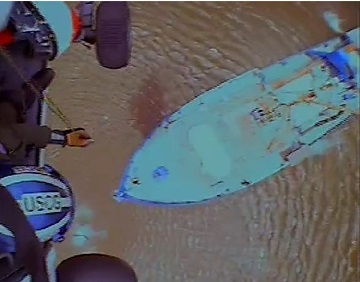
Coast Guard medevacs commercial fishing vessel crewmember near Venice, La.
The Coast Guard medevaced a commercial fishing vessel crewmember Tuesday in West Bay near Venice, Louisiana. Coast Guard Sector New Orleans watchstanders received a call via VHF-FM channel 16 at 1:11 p.m. from the commercial fishing vessel F/V Mary Judith stating a crewmember lost consciousness after being struck in the head by the vessel’s rigging equipment. Watchstanders diverted a Coast Guard Air Station New Orleans MH-60 Jayhawk aircrew to assist. The aircrew arrived on scene, hoisted the crewmember, and transferred him to University Medical Center New Orleans. The crewmember was last reported to be in stable condition. >click for video< 20:30
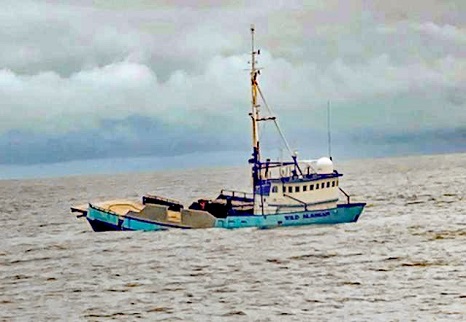
Darren Byler files Two Multi-Million Dollar Lawsuits Against the Coast Guard and the City of Kodiak for the Illegal Sinking of the M/V Wild Alaskan
The 110’ F/V Shaman a Bering Sea Legend was just recently, intentionally sunk by the City of Kodiak, Alaska. The vessel was purchased in 2006 by Darren and Kimberly Byler from then owner, Dan Mattsen. The Byler’s took possession of the vessel at Fisherman’s Terminal in Seattle, Washington and relocated the vessel to Alaska. The Byler’s modified and remodeled the vessel for the Research, Exploration and Long-Range Charter Industry. From 2007-2014 Darren and Kimberly Byler were at the top of their game with this boat and renamed the vessel “Alaskan Leader”. In 2014, Darren Byler stated that his charter business bookings were down as was the economy, at that point Byler came up with an edgy idea to rename the vessel “Wild Alaskan” and provide an Adult Entertainment Charter with Topless Dancers to the local Kodiak Fishing and Coast Guard Population. >click to read< 17:44
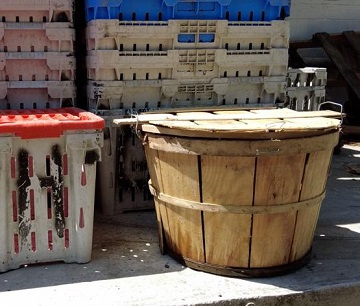
Proposed Pilot Program For Female Blue Crabs
A new pilot program introduced by the Department of Natural Resources has watermen frustrated. It’s with the possible implementation of plastic, rectangular containers called lugs. Currently, caught male blue crabs are able to be placed in lugs, but females are not. So watermen feel the program comes with a lot of hoops to jump through and they ask why the need for the program at all. Lugs are bigger than your typical bushel basket of crabs. Bushels hold about 40 pounds and lugs hold 60. DNR has introduced the idea of using lugs for female crabs. But with that comes rules that participating watermen (in the pilot program) must follow. >click to read< 12:30
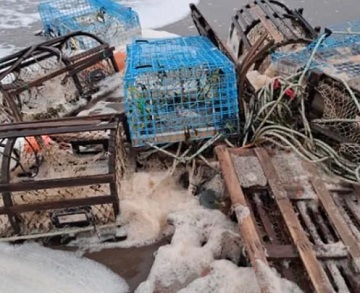
More than 100 lobster traps destroyed by weekend storm
More than 100 damaged lobster traps washed ashore after a powerful storm struck the northeast coast of New Brunswick on Friday. The traps were found mangled and destroyed on the beach at Val Comeau and other nearby areas on the Acadian Peninsula, south of Tracadie, on Sunday morning. James MacEachern, a fisherman who lives in Tabusintac on the north side of Miramichi Bay, saw the storm evolving early Friday morning. “When I went out in the morning, it was already rough,” MacEachern said. “Probably four in the morning, [the storm] had already started.” >click to read< 11:47
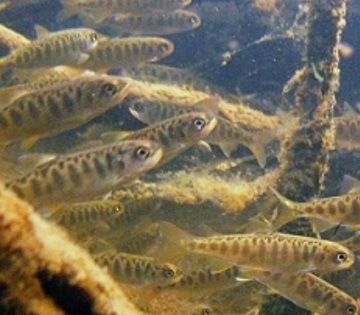
Fishers harvesting abundant Bristol Bay sockeye could fill knowledge gaps about declining Chinook
In the Bristol Bay region, sockeye salmon runs have been booming while Chinook runs have dwindled. Now scientists are seeking to enlist fishing crews in the effort to find out why, as well as what can be done about the Chinook troubles. A community-focused program called Skipper Science is asking for Bristol Bay fishermen working on the salmon-rich Nushagak River to record the prevalence, locations and conditions of Chinook salmon they encounter – and the places where they are not found. In the Bristol Bay region, sockeye salmon runs have been booming while Chinook runs have dwindled. Now scientists are seeking to enlist fishing crews in the effort to find out why, as well as what can be done about the Chinook trouble. >click to read< 11:01
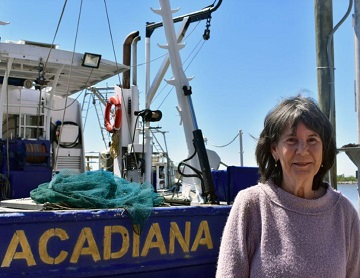
A lifetime of research links Gulf of Mexico ‘dead zone’ to Midwest fertilizer runoff
In the summer of 1985, Nancy Rabalais set sail on a research vessel into the Gulf of Mexico — and into the scientific unknown. Over nearly four decades, Rabalais has become a giant in her field. She has completed hundreds of interviews with journalists, presented a TED Talk, testified to Congress multiple times, mentored countless students at LSU and published nearly 160 studies. Now 73, Rabalais said she doesn’t plan to go on the research cruises anymore due to her age and health issues. She remains engaged in her work, even as she trains a new generation of scientists to take over. >click to read< 10:04
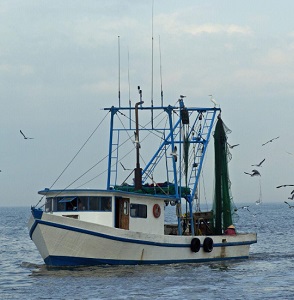
Louisiana: Lawmakers taking action to protect state’s seafood industry
Fishermen in Louisiana are suffering from imports and they’re worried about the future of the seafood industry in the state. It’s why lawmakers are putting tougher restrictions on imports to help struggling shrimpers. Fishermen say they are at risk of losing their livelihoods due to inflation and the abundance of imported seafood. It’s why shrimpers stood on the capitol steps urging lawmakers to do something. Louisiana Shrimp Association President Acy Cooper has been a fisherman in Louisiana for 45 years. He said he hopes he is able to keep it alive so that his grandkids can carry on the legacy. >click to read< 09:12

The Truth About Offshore Wind: Busting Oil Money Myths and Misinformation
The various organizations, news outlets, and elected representatives that have been promoting misinformation about offshore wind have two things in common: 1) conservative politics and 2) ties to the oil industry. Seemingly locally run nonprofits have been leading public anti-offshore wind campaigns, purportedly out of concern about the dangers offshore wind farms present to whales and local economies. Yet many of these same organizations have proven ties to major conservative lobbyist groups funded by “Big Oil.” Meanwhile, both local and congressional conservative politicians have jumped on these misinformation campaigns, especially in the Northeast, where the first offshore wind farms are set to be constructed this year. This is despite several state and national polls showing that Americans overwhelmingly support the construction of offshore wind farms. >click to read< 08:04

Canadian Company Pleads Guilty to Illegally Selling Harp Seal Oil in the United States
FeelGood Natural Health Stores Ltd. (FeelGood) pleaded guilty today to one count of violating the Lacey Act by knowingly transporting and selling harp seal oil capsules in violation of the Marine Mammal Protection Act (MMPA). According to the plea agreement, FeelGood is a Canadian corporation located in Whitby, Ontario, Canada. Between at least April 2019 and May 2021, FeelGood offered harp seal oil capsules for sale in the United States on both its own webpage and a third-party platform. It did so even though its website on the third-party platform acknowledged, “NOT ship to USA,” and though FeelGood received a notice that some shipments had been seized by the federal government for violation of the MMPA. >click to read< 18:55
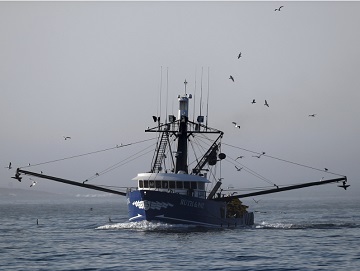
Courts threaten to sink federal fishery monitoring
NOAA suffered a major blow in February when a three-judge panel of the 5th U.S. Circuit Court of Appeals in Louisiana threw out a rule that would have required charter boats in the Gulf of Mexico to be equipped with electronic monitors to report fish catches. Fishermen complained that the devices would cost them as much as $3,000 per boat. And the agency may be poised for an even bigger setback from the Supreme Court. Justices last month said they would take up a case that could decide whether NOAA has the legal authority to force New England herring fishermen to hire third-party contractors to monitor their fishing at a cost of up to $700 per day. >click to read< 13:55
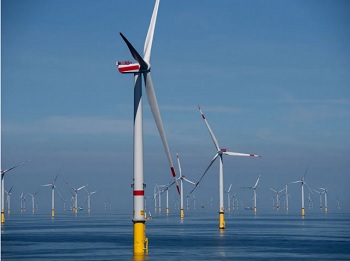
Contrary to mainstream belief, wind turbines are neither effective nor, in many cases, good for the environment
Claims of wind power being pro-environment often do not consider the damaging effects these projects can have on wildlife and ecosystems, thus hiding the “true cost” of such initiatives. Wind power projects can threaten birds that fly within their vicinity and trigger a decline in their population; it can harm marine life due to noise pollution and affect the growth of plants in the region where it is located. Driven by subsidies granted by the federal government, the growth of wind projects has triggered concerns about the cumulative impacts they have on the environment. There have been growing protests against wind power projects across the world. In the United States, people have opposed setting up wind turbines in Lake Erie due to concerns about the environmental impact of the project. In New Jersey, protestors have asked to pause the development of an offshore wind farm which they claim has led to dolphins and whales washing ashore. >click to read< 12:38






